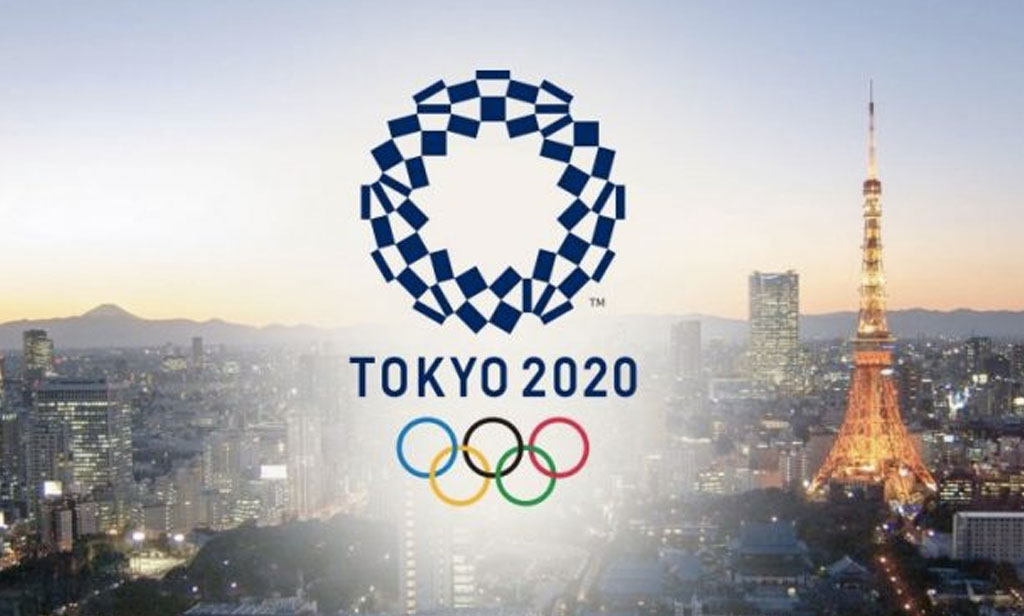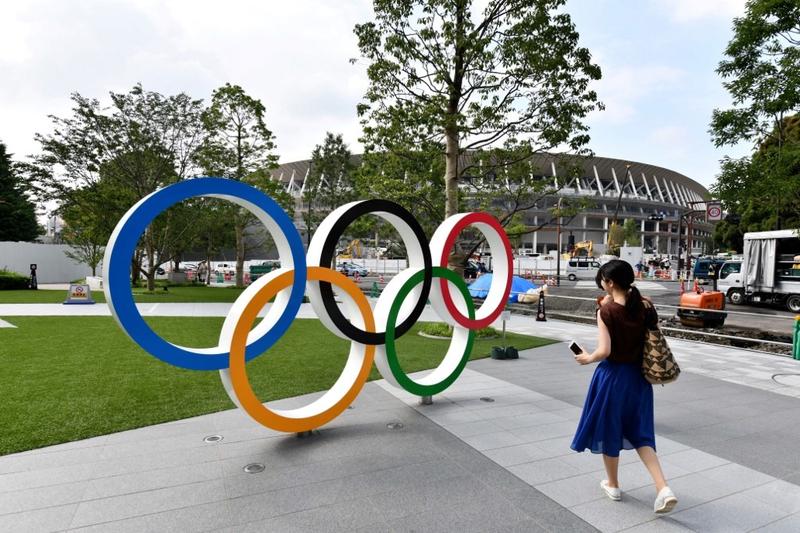Featured
Tokyo 2020 – A Trip of a Lifetime (Part 1)

This is Part 1 of a four-part series explaining the procedure to travel to Tokyo during the Olympics. The series will cover all aspects of the trip such as tickets (prices as well as purchase process), accommodation, flights, land transportation, sightseeing and food so as to provide a holistic picture.
Watching an Olympics live has been a lifelong dream of mine. The greatest sporting extravaganza on earth is surely something that deserves to be attended in person. So, a few years ago, with Indians also now starting to actually win some medals on the big stage, I finally took the plunge and travelled to Rio 2016 with family.
We had the time of our lives watching Sindhu secure her Silver medal by beating Okuhara in the semis and then fighting tooth and nail for the Gold in that epic final against Marin. We saw Usain Bolt in the flesh, setting the stadium alight with Gold in the 200m. We watched beach volleyball in the beautiful setting that is the Copa Cabana. And, as it is the Olympics, we also suffered a few heartbreaks, the most haunting one being Jitu Rai narrowly missing the 50m pistol final due to a disastrous last 5 shots.
But, unfortunately, the fact is that the heartbreaks were a few too many. As it is well known, on the whole, Indian athletes had a pretty disastrous run at Rio 2016. There were also other factors which prevented it from being a perfect trip, like my dad hurting his foot early in the trip and the general organization at Rio leaving a lot to be desired. And of course, we never got to hear the national anthem!
So we had a taste, but we were left wanting more. A lot more! And hence, it wasn’t surprising when soon after Rio, we had already started planning to travel to the Olympics once again at Tokyo 2020.
The Myth
One of the reasons we decided to travel to Rio 2016 was that the 2020 Olympics had been awarded to Tokyo. With Japan’s reputation as one of the costliest countries in the world, we didn’t think our bank accounts could handle a Tokyo Olympics, and thus it had to be Rio.
But since deciding to travel to Tokyo, we have discovered that Japan’s cost reputation is largely a myth. It seems to me that the myth has been created by the western world, which compares Japan with the rest of Asia. Yes, Japan is costlier than other Asian destinations (especially the cheaper destinations like Thailand, Vietnam etc) but it is fine cost-wise when compared with destinations outside Asia, especially the costlier European destinations like Scandinavia.
Also, unlike the west, flights to Japan are very cheap for Indians as compared to, say, flights to South America. So, if you are someone who takes an abroad vacation every one or two years, then Japan, even during the Olympics, isn’t going to burn a gigantic hole in your wallet.
In terms of hotel accommodation, during regular non-Olympic times, Japan seems pretty similar to popular European destinations. But, in addition, there are also a wide range of options available in every price range, from cheap manga cafes and capsule hotels to the branded 5-star hotels. While the rooms are a bit on the smaller side, you can easily find a good 4-5* branded hotel in the INR 10,000-20,000 range or a 3* hotel well under INR 10,000.

In terms of food, Japan is actually incredibly cheap, with tons of options ranging from Ramen to Sushi to street food you have never heard of to international cuisines, including Indian. Road transportation, however, especially taxis, are definitely one aspect that is costly in Japan. Thankfully, it has probably the best train network in the entire world.
Coming to Olympic tickets, yes, on the whole, they are more expensive than they were in Rio, but they are really expensive only if you wish to purchase the highest category tickets of the most popular sports. As an example, the base price for the highest category ticket for the Men’s Athletics 100m Final in Tokyo is JPY 130,000 (roughly INR 85,000) but the cheapest tickets for the same event are only JPY 5800 (roughly INR 3750)! The corresponding prices in Rio were BRL 1200 (roughly INR 22,000 at the time) and BRL 350 (roughly INR 6475). So, in some events, the cheapest tickets in Japan are actually cheaper than the corresponding ones in Brazil (of course, the fact that there will be no Usain Bolt in Tokyo may have had an impact on this particular event).
And this is without considering the fact that, in Rio, an absolutely terrible exchange rate had been locked in by the Brazil organizing committee months in advance of ticket sales which meant that all tickets sold outside Brazil were actually about 50% costlier than they should have been! Luckily, no such issues exist in Japan and the exchange rates being used are quite close to market.
Ticket prices also largely depend on a sport’s popularity in the host country. So, for example, some sports like wrestling and badminton are much more costly in Japan than they were in Rio.
So let’s look at these aspects in a little more detail.
Flights and Visa
Flights to Japan are available at very reasonable prices, as cheap as INR 30,000 return from Mumbai to Tokyo. Singapore Airlines is the cheapest but a little extra cost can get you direct flights on ANA (the largest airline in Japan).
From Delhi, Air India, Japan Airlines and ANA all have direct flights to Tokyo in the range of INR 45,000 return. There are also several other airlines like Thai Airways, Malaysian Airlines, Cathay Pacific etc. offering return flights between INR 35,000 - 40,000.
In fact, recently, there was an excellent offer from ANA offering INR 20,000 for a direct return flight from Mumbai to Tokyo. Being on the lookout for such offers can also be greatly beneficial, but you will need to get lucky.
All information related to obtaining a Tourist Visa for Japan is available here. The Visa costs INR 1160 per person (including service fees) and usually takes about 4-5 days to be processed.
Accommodation
Finding the right accommodation during the Olympics is a marathon as opposed to a sprint. The issue with accommodation is that when the Olympics get allotted to a city, the hotels themselves don’t know how much they can actually charge sports-crazy customers. As a result, they often start with absolutely ridiculous prices which eventually fall when rooms stay empty. Also, the IOC often block-book a lot of rooms, many of which they do not use and eventually release. Thus, patience is absolutely key.
As an example, before Rio 2016, I had once seen rooms in favelas (the equivalent of slums in Brazil) being rented out for INR 20,000 per night! Such exorbitant prices though never last, and in London 2012, in fact, many hotels were forced to sell rooms towards the end at below-normal prices (though this never quite happened in Rio due to the city not having a large number of hotels, to begin with).

One of the things to note during the Olympics is that the city is actually not as crowded as one may first assume. This is because while there is a great influx of sports tourists, regular tourists with no interest in sports make sure to stay away, and thus balance is restored to a certain degree.
In Tokyo, up until a few months back, almost no hotels were even selling rooms during the Olympics. They were all essentially adopting a wait-and-watch policy and keeping an eye on the prices being offered by their few competitors that had started selling. Many hotels have now started selling but prices are still way too high. For example, the Hilton Tokyo Bay is available during the peak cherry blossom season for INR 20,000 per night but during the Olympics, it is currently showing at INR 85,300 per night.
The best strategy is to book a hotel with free cancellation and wait to see if prices decrease near time. Also, it is valuable to keep searching as something suitable might pop up at any time. As of now, many 4* hotels are available upwards of INR 30,000 per room per night in the city centre. A little outside the city centre, there are decent options out there in the range of INR 20,000.
One result though of the wait-and-watch policy adopted by many hotels is that there are a wide range of prices. You might see a 4* hotel for INR 20,000 and at the same time, some capsule hotel might also be selling INR 20,000. Thus, the best course of action is to keep searching and searching.
Personally, I can attest that we currently have multiple room options booked in Tokyo, all on free cancellation basis. However, none of them is perfect. One of them is a 4* branded hotel, booked 2 years in advance for just INR 8000 per room per night but located at the Narita Airport (1-1.5 hours from the city centre by train). When we had booked, the hotel had mistakenly started selling without realizing it was the Olympics and now the same hotel is selling for about INR 25,000.
We also have some other hotels in the range of INR 20,000, but either the rooms are too small, or the hotel is a little away from the city centre, or we were able to book only 4 nights in the perfect hotel before it realized it was the Olympics and increased prices. We even have a branded hotel booked on points, but we don’t currently have anywhere near the required points and thus will need to try and earn them through credit card spending.
In terms of Airbnb (not our cup of tea!), there aren’t many options as some recent law changes in Japan imposed certain hotel-like regulations on apartments as well and thus many apartments have been delisted. Further, the risk of the host cancelling at the last minute is always quite high during the Olympics.
All in all, with some patience and searching, a decent 3-4* hotel in Tokyo is highly likely to be attainable in the INR 15,000-20,000 range. The cost can even be lower depending upon your requirements.
Part 2 of this 4-part article series will deal with ticket purchase procedures.
*This article series has been written in conjunction with my sister Kavita Choudhary who blogs about our family travels at https://4holidaymaniacs.com/






